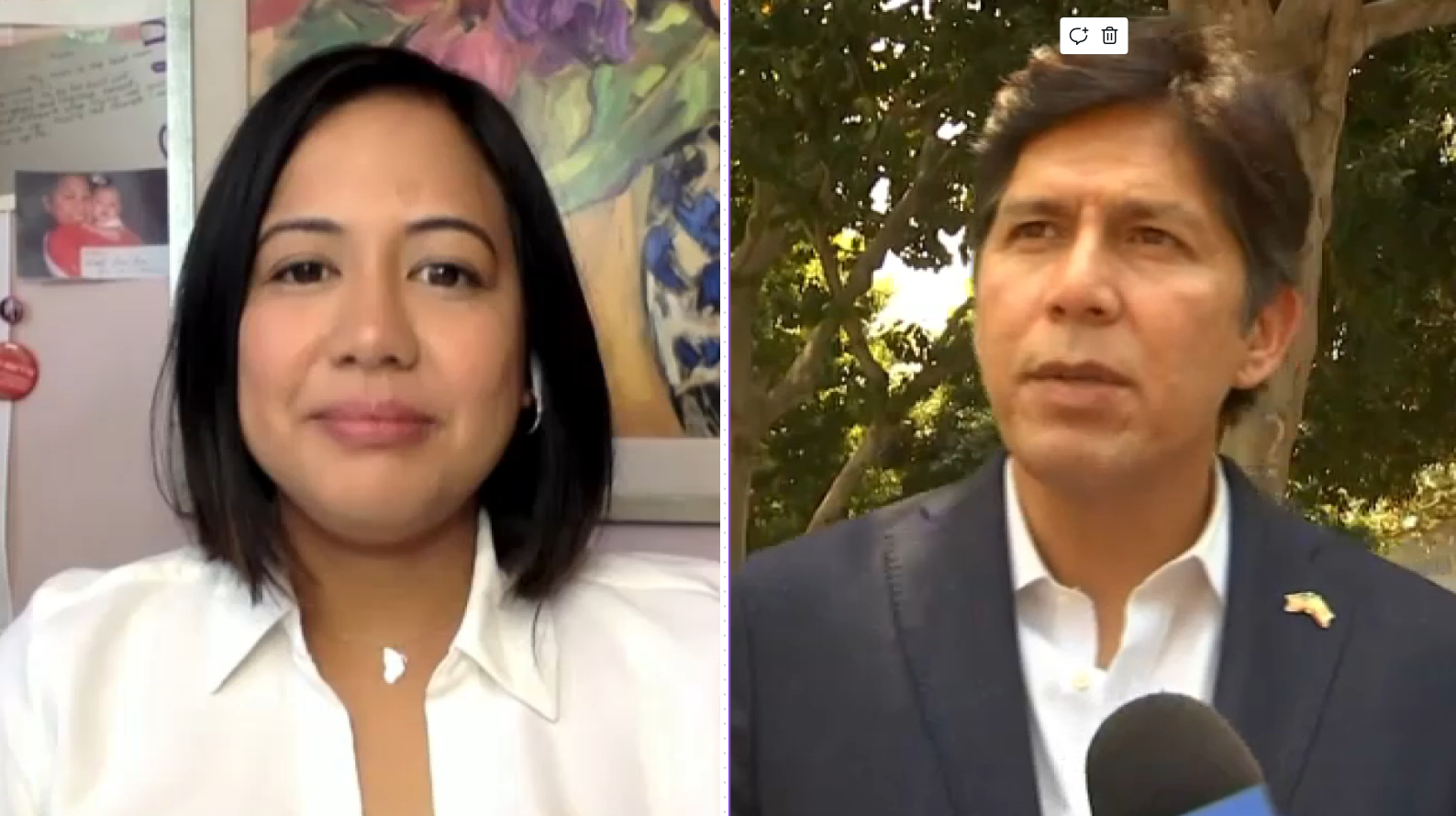Team USA is leading the world in the number of gold medals won in the London Olympics, but when it comes to official Olympic clothing, the U.S. is losing out.
The U.S. Olympics Team is selling thousands of items of clothing online sporting the official U.S. Olympic logo that are not made in the USA. These popular Olympic souvenirs, some of which are now sold out, could have been made at a generous profit right here in Los Angeles.
"We could make these Olympic clothes as cheaply or cheaper, and get them to people quicker than the Chinese," said Dov Charney, CEO of American Apparel, the largest clothing maker in the LA-area, which churns out a million pieces of clothing a week.
One example: a medium-weight Team USA crew neck T-shirt, emblazoned with the official games logo as well as the Ralph Lauren emblem sells for $55 online. It could be made by American Apparel for $5 and sold to Ralph Lauren for $10, a cost that is in line with overseas manufacturers.
More than 300 of the 345 items for sale on the U.S. Olympic Team’s website were made overseas. The Ralph Lauren T-shirts were made in the Philippines. A Ralph Lauren beret with the Olympic insignia, also for sale on the website, was made in China.
"Buyers at big companies like Ralph Lauren are programmed to buy offshore,” Charney said. “And the entire (clothing) industry is programmed to think that offshore is cheaper.”
For many years, that was true: the wages of workers in China and other Asian countries have been far lower than those of the U.S. labor force, and so was the cost of fuel to transport clothes across the Asian continent and ship them to the U.S.
Local
Get Los Angeles's latest local news on crime, entertainment, weather, schools, COVID, cost of living and more. Here's your go-to source for today's LA news.
Experts say consumers don’t care where their clothes are made; they are more concerned with price.
"People are now accustomed to 'cheaper,'" said Ilse Metchek, president of the California Fashion Association. “The United States consumer has been very accepting of 'Made in Mexico' and 'Made in China.'"
A U.S. government crackdown on factories employing undocumented workers contributed to the manufacturing exodus.
"The majority of skilled labor here in Los Angeles that knows how to sew, they’re falsely documented," Charney said.
In 2009, an investigation by the US Department of Homeland Security forced American Apparel to fire more than 1,500 undocumented workers, or face stiff fines.
American Apparel has now replaced those fired employees with documented workers and that its workforce is larger than ever, Charney said. The company has expanded its operations so that it can design, sew and transport clothes directly from its LA operation.
Charney said he can make clothes and get them to U.S. stores in less than a week. “Speed is our competitive advantage” over Asian factories, he said.
Some items on the Team USA website are sold out, and online sales reps told NBC4 they will not be restocked due to the amount of time needed to produce and ship them. Charney said his company would have been more nimble, restocking the popular items within a few days.
"Not only could we probably have made the first run cheaper, but we would have been able to replenish them," Charney said.
Economists say the changing global economy means that clothing manufacturing could increasingly return to U.S. factories. If the price of oil continues to increase, the cost of shipping goods from Asia to the U.S. could outweigh the savings of cheap labor in Asia.
"There’s an opportunity to bring some apparel manufacturing back to the U.S.," said Professor Felipe Caro, of UCLA’s Anderson School of Management. "American companies can now compete in terms of speed" by turning out high-demand clothing items quicker than Asian factories.
As for LA's biggest clothing maker, American Apparel, their founder would love to get a slice of future Olympic clothing.
"We will see a lot of apparel manufacturing here in LA," Charney told NBC4. "I just hope to have a head start on it."
Follow NBCLA for the latest LA news, events and entertainment: iPhone/iPad App | Facebook | Twitter | Google+ | Instagram | RSS | Text Alerts | Email Alerts



